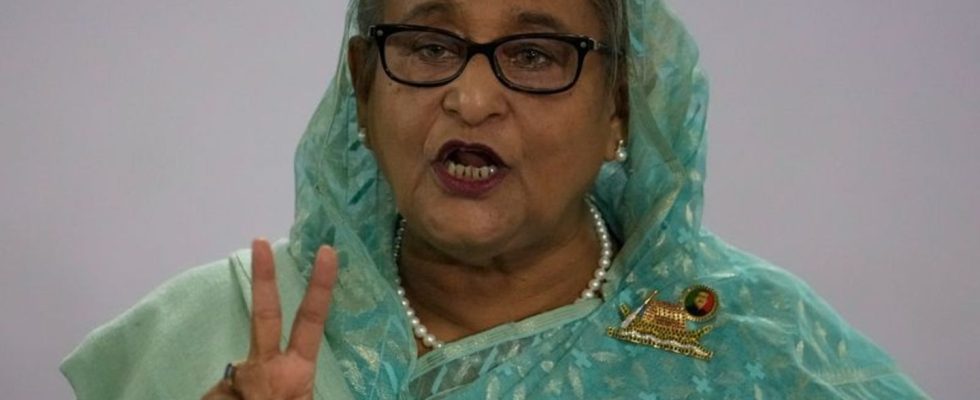General election
Election in Bangladesh: Head of government before fifth term
Fifth term: Sheikh Hasina remains the Prime Minister of Bangladesh. photo
© Altaf Qadri/AP
Hasina has been her country’s prime minister since 2009 and will remain so even after the parliamentary elections. The opposition did not even take part in the vote.
The main opposition party, the Bangladesh Nationalist Party (BNP), boycotted Sunday’s general election because it said it was not conducted fairly. The 76-year-old Hasina’s party, the Awami League, has secured 223 of 298 seats in parliament, the head of the election commission, Kazi Habibul Awal, announced to reporters. Two further seats were not awarded because there was violence during the election in one constituency and a candidate recently died in another.
Under Hasina’s rule since 2009, poor, Muslim-majority Bangladesh experienced an economic boom. Recently, however, high inflation has caused problems for many people. At the same time, the BNP and human rights organizations accuse her of targeting her opponents and critics and having thousands of them arrested. Freedom of expression and freedom of the press have also suffered as a result. She is the person who has held the position of head of government in her country for the longest time.
Overall, according to the electoral commission, only 41.8 percent of the approximately 120 million eligible voters in the South Asian country of 170 million people cast their votes. In the previous election in 2018, more than 80 percent did this.
Washington: Election was not free and fair
The US government has sharply criticized the way the vote was conducted. “The United States shares the view of other observers that these elections were not free and fair, and we regret that not all parties participated,” the State Department said in Washington. They condemn the violence during the vote and “remain concerned” about the arrests of thousands of opposition members.
Before the election, the BNP called on people not to vote, and the party also did not put forward any candidates for the 300 seats in parliament. Hasina’s party had little competition. The Prime Minister recently described the BNP as a terrorist organization and emphasized that she was fighting to preserve democracy in her country.
Hasina is the daughter of Bangladesh’s founding father, Sheikh Mujibur Rahman, who was assassinated along with his family in a military coup in 1975. She survived because she was in Germany at the time. She has been in power without interruption since 2009. She is accused of having manipulated the 2014 and 2018 elections.

